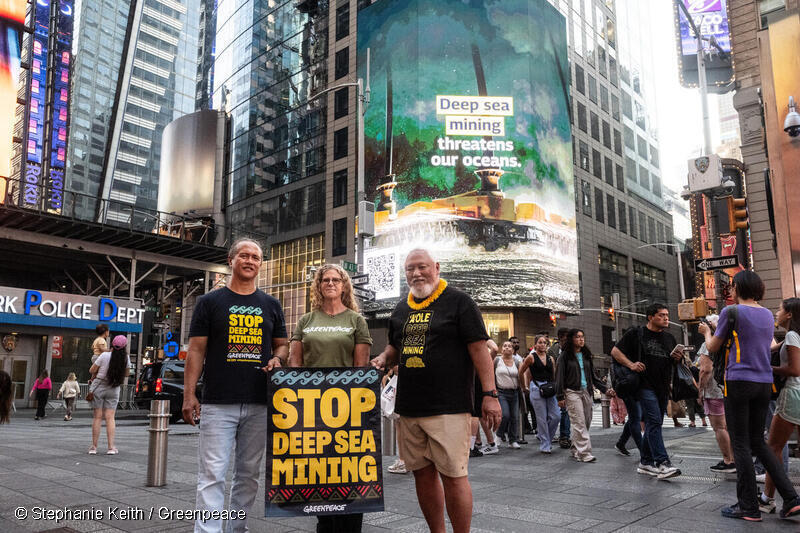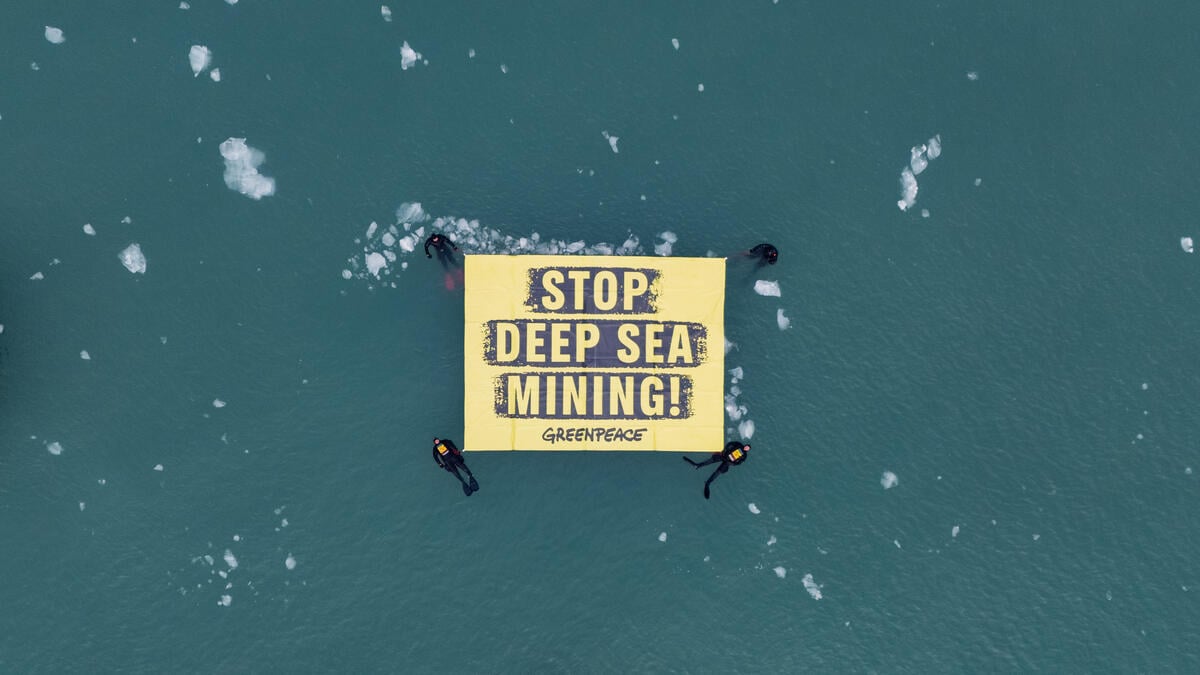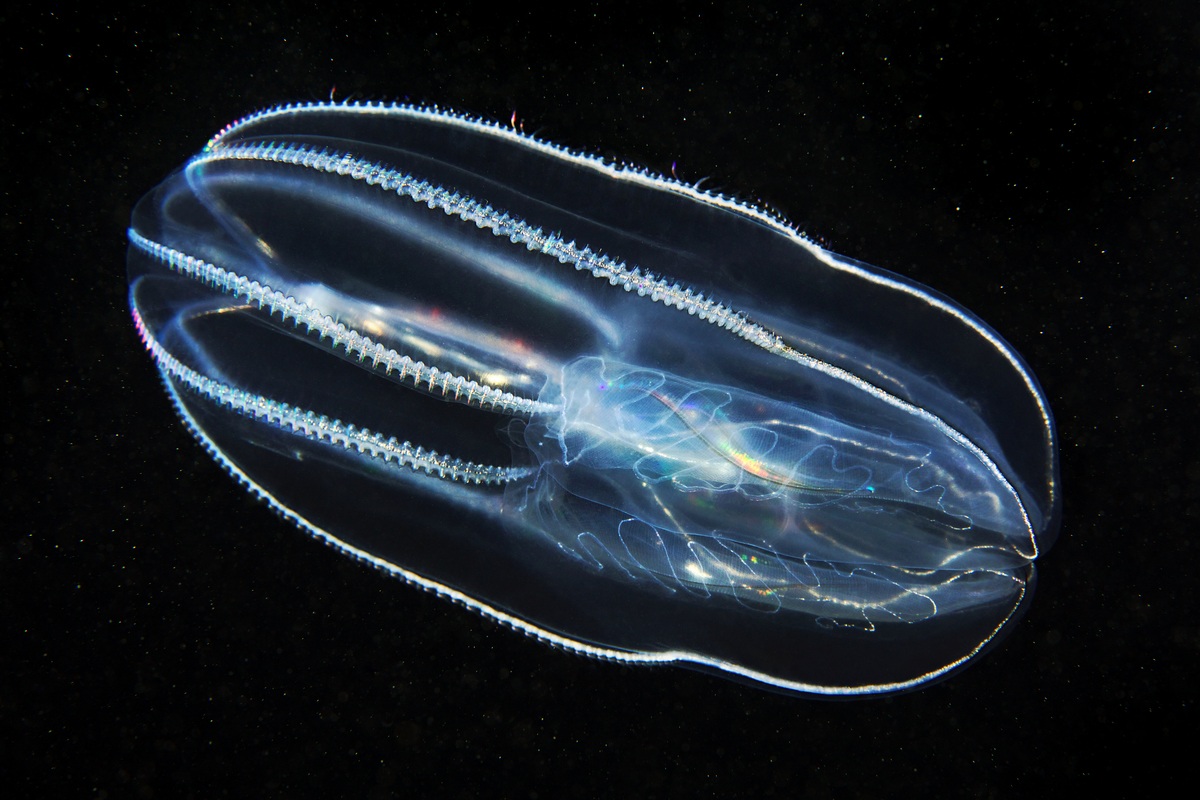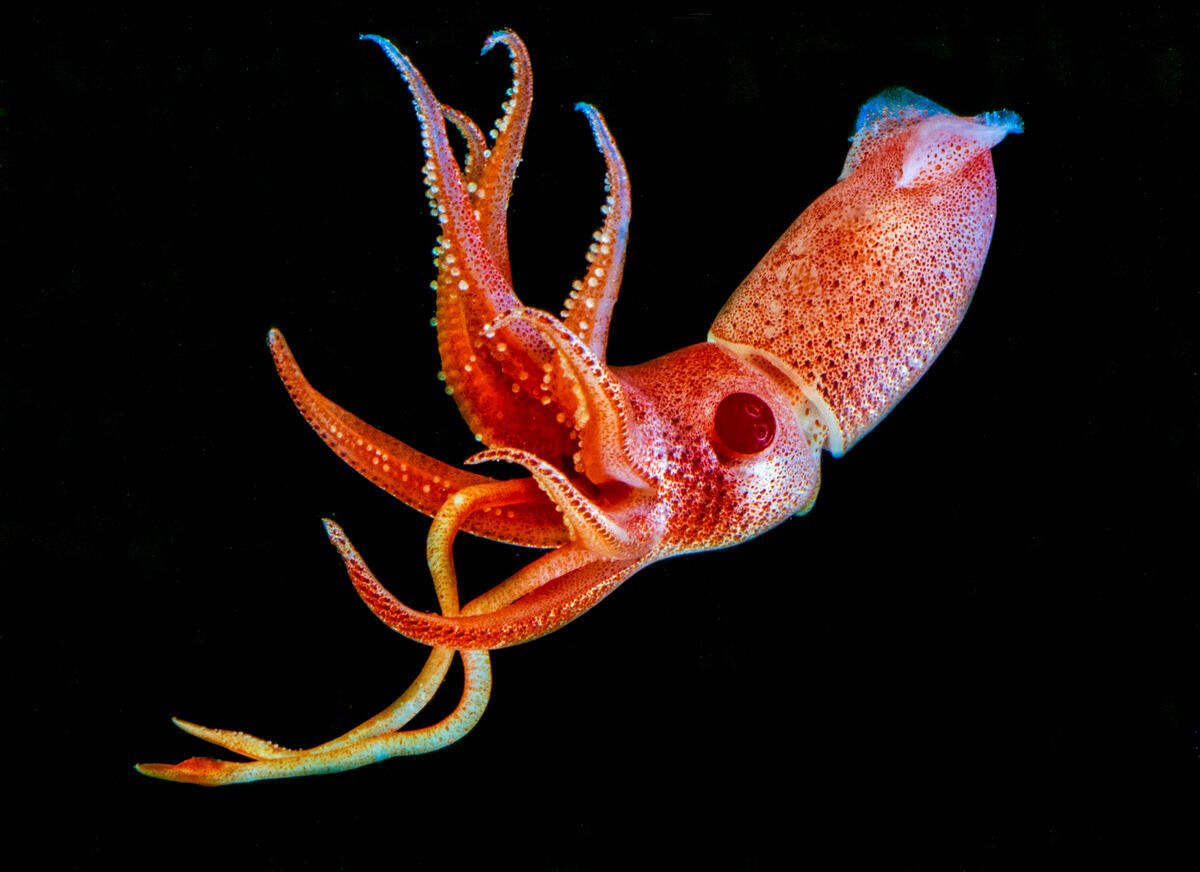Urges Biden-Harris Action Amid “Dark Oxygen” Discovery

Urges Biden-Harris Action Amid “Dark Oxygen” Discovery

Washington, D.C. (July 26, 2024)-Greenpeace USA celebrates American Samoa’s decision to impose a moratorium on seabed mining in its waters. Governor Mauga’s order underscores the severe risk of deep-sea mining, including threats to marine biodiversity, habitat destruction, pollution, and disruption of essential ecological processes – all of which could have lasting and irreversible effects on marine life and local communities.
Arlo Hemphill, Greenpeace USA Oceans Are Life campaign lead, said: “The Governor’s action is a powerful statement against the risks of deep sea mining. It’s a clear example of the kind of leadership we need to protect our oceans. We urge the Biden-Harris Administration to act decisively by joining the growing global movement against deep sea mining. Now is the time to support the call for a global moratorium, prioritize investments into sustainable alternatives, and reinforce protections for our oceans.”
American Samoa joins Hawaii, California, and several other states in establishing their own ban or restrictions on mining in their waters. U.S. House Natural Resources Committee Ranking Member Raúl M. Grijalva (D-Ariz.) and Rep. Ed Case (D-Hawaii), alongside a dozen House Democrats, have urged President Biden to support a moratorium on deep sea mining, stressing the need for robust scientific evaluation before any mining activities proceed. In July 2023, Rep. Case introduced two measures calling for a moratorium on deep seabed mining unless and until its consequences are fully understood and an appropriate protective regulatory regime is established.
The urgency of the issue has been amplified by a groundbreaking study revealing that polymetallic nodules targeted for mining may be producing “dark oxygen” in the deep sea. Led by Andrew K. Sweetman at the Scottish Association for Marine Science, this research raises new questions about the origins of life on Earth and the role of these nodules in oxygen production without photosynthesis. At the ISA negotiations now underway in Jamaica, delegates from Panama and Costa Rica, supported by scientists, have urged caution and further investigation into this phenomenon before any mining activities proceed.
Gerard Barron, CEO of The Metals Company (TMC), which partially funded the study, has announced plans to challenge the discovery, despite the resounding support of the findings from the global scientific community. Despite ongoing debates and a lack of consensus on deep-sea mining regulations, Barron also confirmed his company’s intention to apply for a license to mine the deep sea ocean floor in the Clarion Clipperton zone between Hawaii and Mexico.
Louisa Casson, Greenpeace International global campaign lead on deep sea mining, said: “The Metals Company partly funded this groundbreaking discovery in the deep sea, but instead of listening to the science, they want to discredit it and push ahead with their plans to destroy the seabed. If we allow deep sea mining to start, who knows how many discoveries about the mysteries of the ocean floor like this could be lost? We need a global moratorium against this destructive industry. Governments are negotiating whether to allow deep sea mining to start, so there’s no better time to have this discussion.”
Given the paucity of science, a pause or moratorium on deep sea mining is supported by 27 governments to date, including Brazil, Canada, Chile, France, Germany, Mexico, New Zealand, Palau, and the United Kingdom. More than 800 scientists and marine policy experts; and 47 business and financial institutions, including tech giants and electric vehicle manufacturers Google, Samsung, Volkswagen, Rivian, BMW, and Renault, also support a moratorium. The UN Human Rights Commissioner, International Union for the Conservation of Nature, civil society groups, and Indigenous groups from Hawai’i and the Pacific at large – whose lives and livelihoods rely on the ocean – have also echoed this call.
###
Greenpeace USA is part of a global network of independent campaigning organizations that use peaceful protest and creative communication to expose global environmental problems and promote solutions that are essential to a green and peaceful future. Greenpeace USA is committed to transforming the country’s unjust social, environmental, and economic systems from the ground up to address the climate crisis, advance racial justice, and build an economy that puts people first. Learn more at www.greenpeace.org



